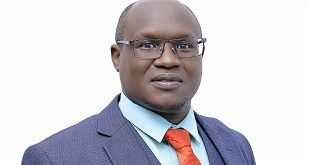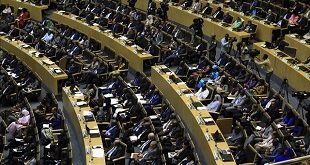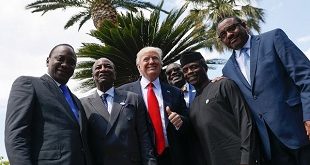
By Prof. Micheal Madill
The debate about universal primary education (UPE) is mired in arguments about statistics and public relations. You only have to pick up a newspaper and read the finely calibrated comments on all sides following the publication of the Uwezo report. We are bickering about literacy rates, numbers of schools built and shillings spent or wasted. But what happened to the children?
In Uganda, around 135 of them die for every 1000 live births. That’s one in seven dead before they reach five years old. Ninety per cent “ almost all “ children here grow up in poverty. One of five suffers from chronic hunger. Three hundred die every day from malaria. Measured this way, UPE is a failure because it doesn’t matter how many children you enroll or how many schools you build if children are too poor or sick to attend or too hungry to learn. We were told UPE was a cure for these problems. Really, though, it’s the other way round.
Universal primary education will only succeed if children learn, and they can only learn well if they are reasonably secure, housed, fed, clothed and supplied with a few tools. These basics won’t arrive, though, until families can afford to provide them, and that means jobs and money in the pocket. Education depends on economic development. The President admitted this when he feted teachers at Lugogo but told them not to expect better pay until he had sorted out the roads and power plants.
Where did the money go? The economy is supposed to grow 5.9 per cent and maybe as much as 7.4 per cent this year, but only because of the collapse in food prices amid the global economic crash. Food prices rose almost 3 per cent in September, though, and if they continue they will wipe out the good economic news. The debate over the present year’s budget six months ago revealed the government was not collecting revenue at the rate it wanted, making a shortfall of almost 30 billion shillings in one month, or more than 350 billion shillings a year. Then there was the 450 billion shillings gap between budgeted expenditure and estimated revenue. Put these together, and the government needs almost one trillion shillings just to break even in this fiscal year. Some of this money will come from aid and some from other external financing and some will simply not come at all. This will make it hard for the government to respond to problems in UPE once it has paid for roads and can no longer divert attention by criticising statistics and methods in a report it finds unfavourable.
If the economy were a pie, it would be shrinking or at least not getting bigger. Two political consequences of this are more competition for less government money and a decline in the power of people or factions not critical to the security of the regime. Both manifested at International Teachers’ Day celebrations, and they are bad news for UPE and bad news for the economy. When teachers are told in an election season that they must forego salary rises and that they need closer government guidance and tests of their patriotism, it’s a sign they have become pawns and not partners in education. It’s also a hint that money which could be used to help them is being re-allocated to a purpose judged more important. With no money or insufficient political will available to rescue a failed programme, the government is playing for time and trying to shift responsibility for the quality of education to parents and teachers.
Yet that is precisely where responsibility should lie. Parents should play a greater role in teaching children themselves and in monitoring teachers. Parents and teachers should lobby administrators for better run schools and all three together should press government for help in supplying needs and meeting goals determined locally. But in a country where 31 per cent of people live in poverty, where half the population lives in rural areas barely served by government, where at least 50 per cent of children are at risk from nutrition deficiencies and where tens of thousands die annually from malaria and tuberculosis the reality is everyone involved in lacks the time and money to make UPE successful.
Most parents are lucky to meet teachers or school administrators because they are busy working or are one of the 40 per cent who don’t have a job at all for long periods each year. Most families can’t afford to see their children out of primary school because farm prices or wages are stagnating. So, they look to government to provide resources and ensure quality education. But government is focussing its limited resources on infrastructure, leaving UPE under-funded, guaranteeing more failure. It’s no surprise the programme has not fulfilled its purpose even though it has met some statistical targets. That developing infrastructure, addressing food security and rebuilding a public health system are the right policy choices right now only highlights the government’s failure to address any of them adequately.
Policy failures and the absence of significant improvements in the economy bite harder in centralised and undemocratic regimes than in others, because governments there can’t rely on the private sector to stimulate investment or to take risks. When the government is the only actor capable of delivering a programme and the government runs out of money or has more urgent needs, there is no one to take up the cause or to raise money which might make a difference.
Fixing the economy will increase the long-term chances of success for UPE in ways that bickering over numbers would never do. Lifting people out of poverty makes getting into and staying in school realistic for children in rural or low-income families. When those kids also have enough to eat and a safe home they are more likely to learn and remember what they learn. Then, and only then, will programme indicators like the ones in the Uwezo report or those which issue from the Uganda National Examinations Board and the Ministry of Education mean anything. For now, they are just numbers, and they make it easy to forget that the real losers over UPE are not government or teachers or parents, but children.
Prof. Michael Madill is an Adjunct Professor of Political Science at Oakton Community College, USA
 The Independent Uganda: You get the Truth we Pay the Price
The Independent Uganda: You get the Truth we Pay the Price


